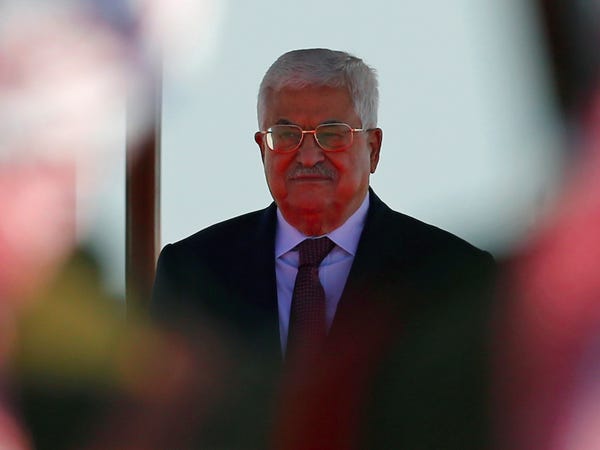The 11-day showdown between Israel and Palestinian factions in Gaza has changed the dynamics of the Palestinian-Israeli conflict in many ways after years of political inertia that left the right wing government, led by Prime Minister Benjamin Netanyahu, with room to accelerate the demographic change in East Jerusalem and the de facto annexation of the West Bank territory. For years, Israel had carried out stark violations of its responsibility with impunity. Faced with internal divisions and an ageing leadership, the Palestinian Authority (PA) could do little to offset Israeli policies.
Netanyahu, facing the prospect of being evicted from the Israeli political stage after 12 long years, sought to ignite a crisis in East Jerusalem as Palestinians marked the beginning of the holy month of Ramadan. From setting up barricades at Damascus Gate to allowing radical settlers to storm Al-Aqsa Mosque under the protection of heavily armed Israeli police and then besieging the residents of Sheikh Jarrah Arab neighborhood, he underestimated Palestinian and international popular response.
For days on, Palestinian President Mahmoud Abbas watched silently as Arab residents of East Jerusalem, the majority of whom are youth, staged peaceful resistance against Israeli provocations. Suddenly, the plight of Sheikh Jarrah and the attack on worshippers at Al-Aqsa caught the attention of the media and the world. For the first time in many years, images of peaceful Palestinian struggle under occupation were trending on social media. Raw footage of Israeli soldiers attacking peaceful protesters in East Jerusalem went viral and soon enough, Israel was losing the PR campaign. Netanyahu’s ploy had backfired.
But then Hamas saw an opportunity to take over the stage. It launched missiles on Jerusalem in solidarity with Palestinian residents of East Jerusalem and Al-Aqsa. Israel’s response was horrific. Millions watched as Israel struck residential buildings in Gaza, including towers where international media offices were based, in an effort to destroy Hamas’ military infrastructure. The human cost on the Palestinian side was overwhelming. This was an asymmetrical confrontation. Despite western denunciations of Hamas, world opinion took the side of the Palestinians. By the time a ceasefire was reached, the political landscape had changed.
Netanyahu may be replaced next week by a wide coalition of the right wing, centrist and leftist parties who came together with one objective in mind: to bring down the 71-year-old Likud leader who had dominated the political stage for decades. His divisive policies had come to an end.
On the opposite side, Abbas, who recently cancelled legislative and presidential elections and remains in power since 2005, was revived by the fact that he was finally contacted by President Joe Biden and was visited by US Secretary of State Antony Blinken. The US is seeking to rehabilitate the PA. The US is also hoping to diminish any political gains made by Hamas following the latest crisis.
But the reality is that Abbas cannot assume that it will be business as usual. Palestinian rift continues to pose the biggest internal challenge for the national cause. The largest faction, Fatah, is divided and would have lost the elections if they were held on time. Palestinian reconciliation efforts have resumed in Cairo but there is little hope that they would lead to a breakthrough.
What is needed at this stage is for the PLO to be revived as the body representing all Palestinians. The fate of Palestinians should not be left to an ageing and disconnected leadership. While Netanyahu may be gone — for now — the incoming Israeli premier, Naftali Bennett is a committed pro-settler, who favors the annexation of the West Bank. There is little doubt that under him, the colonization of East Jerusalem and beyond will continue.
The fact that the Palestinian national cause has once more moved to the center stage and is being supported by activists, influencers and politicians all over the world should be seized upon by a political body that is representative of all Palestinians, including those in the diaspora. The PLO’s revival as an all encompassing body should become a universal demand by all Palestinians.
It is inconceivable that Abbas and the PA should continue to follow the same dysfunctional policies of the past two and half decades. Israel has clearly moved beyond Oslo and is creating new facts on the ground that makes the two-state solution impossible. The events of the past two months have given the Palestinian cause a new lease of life, one that must be sustained by maintaining the current wave of international solidarity.
Palestinian youth, making up about 40 per cent of the population of Gaza and the West Bank, have taken the lead in the peaceful resistance giving a new face to their just cause. They need to be represented and they need to have a voice.
*The writer is a journalist and political commentator based in Jordan.
June 12, 2021
The viewpoints expressed by the authors do not necessarily reflect the opinions, viewpoints and editorial policies of Aequitas Review.


